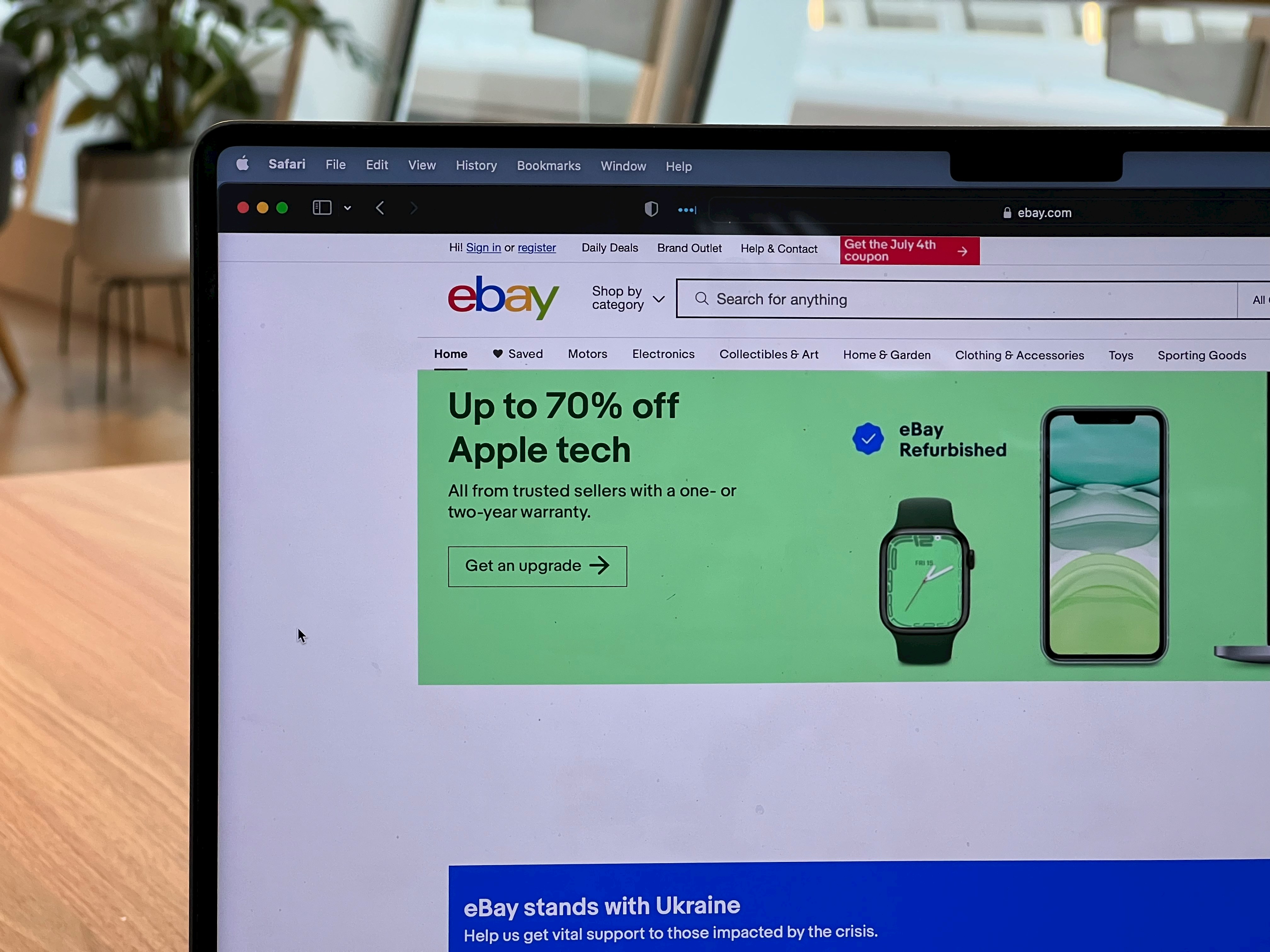
Here’s a weird fact. There are currently a little over 8 billion people on the planet, yet there are about 16 billion mobile phones. Convenient maths shows us that means every single person on the planet has on average two phones.
Even more startling is the fact that, according to the international Waste from Electrical and Electronic Equipment (WEEE) Forum, more than 5 billion of those will be thrown away this year and head to e-waste.
That is despite the fact that these devices contain valuable resources including gold, silver, copper, and palladium. Estimates put the value of these precious metals dumped each year at more than US$10 billion.
It’s not just mobile phones that are the issue, all electronic waste – from laptops to smart TVs – is a pressing issue that needs addressing.
In the UK alone, two million tonnes of e-waste is discarded each year. That’s according to Mark Monte-Colombo, Head of Refurbished Technology for eBay UK, who says refurbished technology can support a circular economy and enhance accessibility.
“Globally, a significant surge in electronic waste is expected to reach 74.7 million tonnes by the end of the decade,” Monte-Colombo tells Sustainability.
“However, the good news is that increased interest in refurbished technology can help to drastically reduce waste. For example, on eBay UK, through the sale of refurbished products, we avoided over 2.8 million kg of waste in 2022, which is equivalent to over 23.5 million phones being spared from landfills.”
Growing Demand for Refurbished to Reduce Costs and Waste
Refurbished technology refers to any tech product that has been used and returned, either to the original business or an approved reseller, for repairs or vetting before being resold.
People return technology for various reasons: perhaps the item is pristine but the customer had a change of mind within the returns window, sometimes items are returned due to marks or wear, many returns fall under what eBay calls ‘open box’ – meaning the item is pristine but not in its original packaging. On top of that, retailers offer trade-in schemes to help people upgrade their tech.
Monte-Colombo says momentum is growing for refurbished technology. More and more brands are seeing the value in refurbished products, and eBay now features over 150 leading brands in its refurbished category, such as Dyson, Samsung, and Apple.
“We understand how crucial it is to partner with major companies to extend the lifespan of electronic devices, reduce waste, and promote a circular economy,” he says.
“Looking ahead to 2024, I’m anticipating continued momentum for refurbished products.
Despite challenging times, consumers still genuinely care about the environment. Nearly a third (32%) of UK consumers we surveyed confirmed they’d purchase pre-loved or refurbished items because it’s better for the environment.”
Switching to Refurbished Drives Circular Economy
Refurbished technology is clearly resonating with consumers, with price being an important factor. Any stigma associated with ‘refurbished’, ‘second hand’, or ‘used’ is also being dispelled, largely thanks to mobile phones providing a “gateway” into the market.
Monte-Colombo says the frequent turnover of devices with contract upgrades has seen a constant influx of relatively new mobile devices becoming available as refurbished.
“The resale of pre-loved and refurbished goods on our global platform conserves resources and reduces waste,” says Monte-Colombo. “In 2022, we avoided 73,000 metric tons of waste globally through buying and reselling on the platform.
“Refurbishing requires significantly less energy compared to manufacturing new products. Our Refurbished category extends the lifecycle of electronic products and diverts them from landfills, helping shoppers reduce their environmental impact.
“With these environmental benefits, more consumers and businesses switching to refurbished vs new will enable a circular economy model.”
How Businesses can Benefit From Choosing Refurbished
There is still work to do to shift consumer attitudes from considering refurbished products as an afterthought to a first thought. To shift this perception, promoting the value and quality of refurbished tech products and their reduced environmental impact is essential.
Monte-Colombo says another significant challenge is educating consumers about electronic recycling and reducing barriers to recycling electronics that no longer function and cannot be repurposed.
“There’s also a real opportunity for businesses to invest in refurbished technology vs new, a trend we’ve already observed gaining traction,” he says.
“Nearly 60% of UK businesses actively opt for refurbished hardware over a new device. With many businesses setting sustainability goals, transitioning to refurbished technology can effectively help achieve these objectives.
“For me, the future is refurbished. In 2024, we’ll see sustained consumer demand for refurbished tech. I’m excited to see the continued shift to a more sustainable future.”
Source Sustainability


